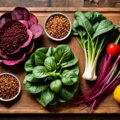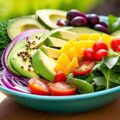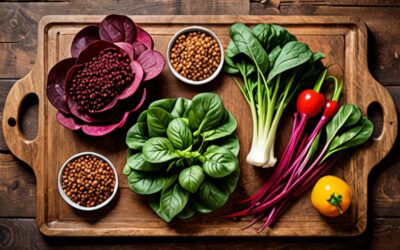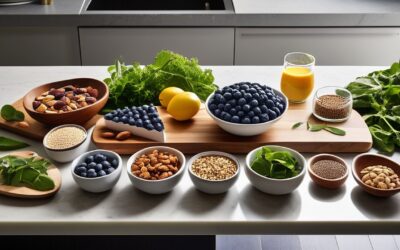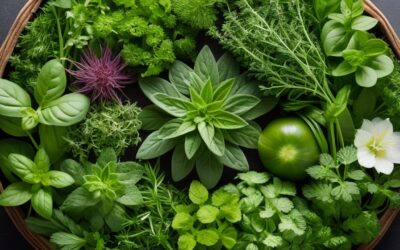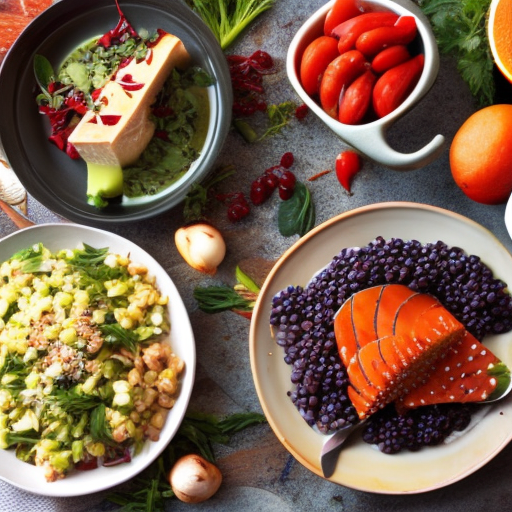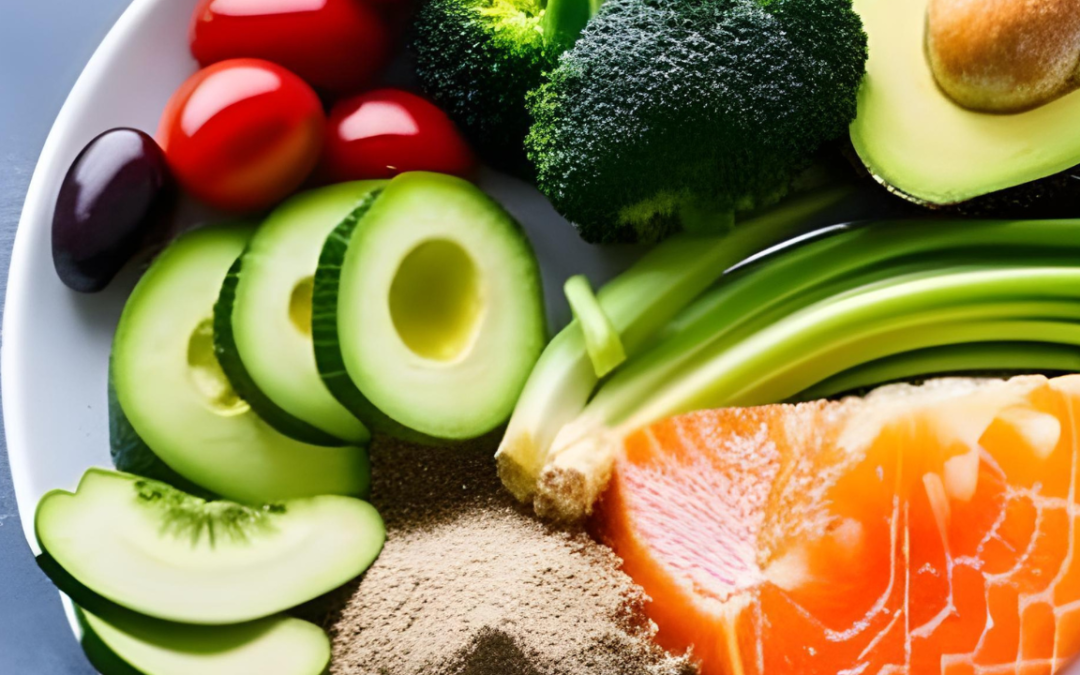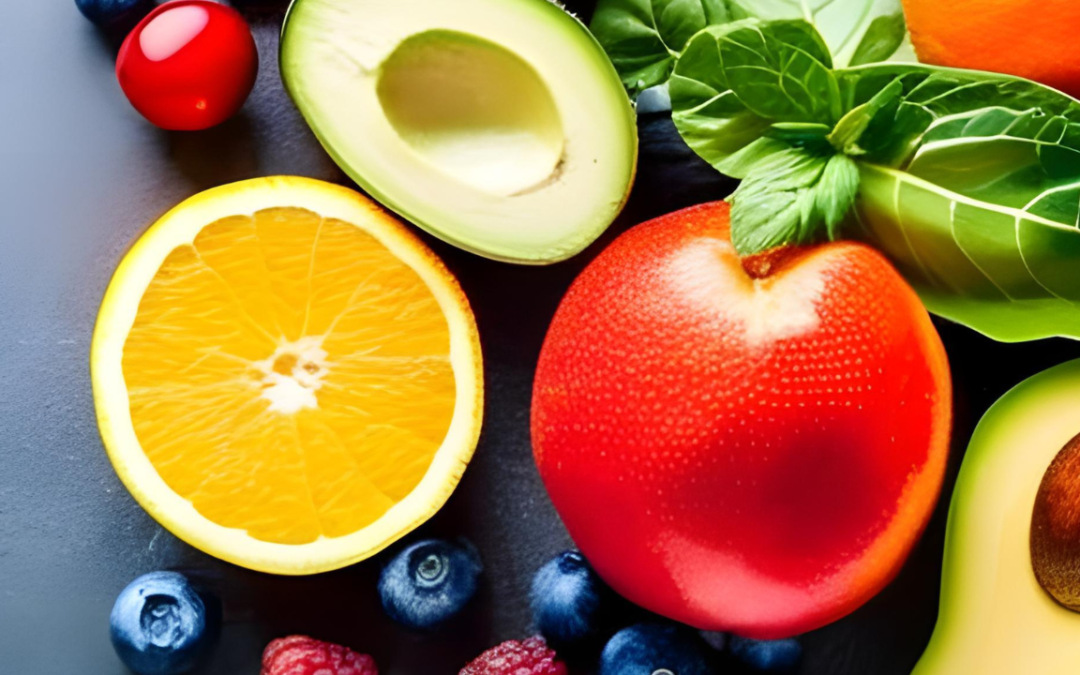Embracing a vegetarian diet not only decreases the probability of chronic diseases like heart disease, diabetes, and particular cancers but similarly establishes a healthy weight management scheme.
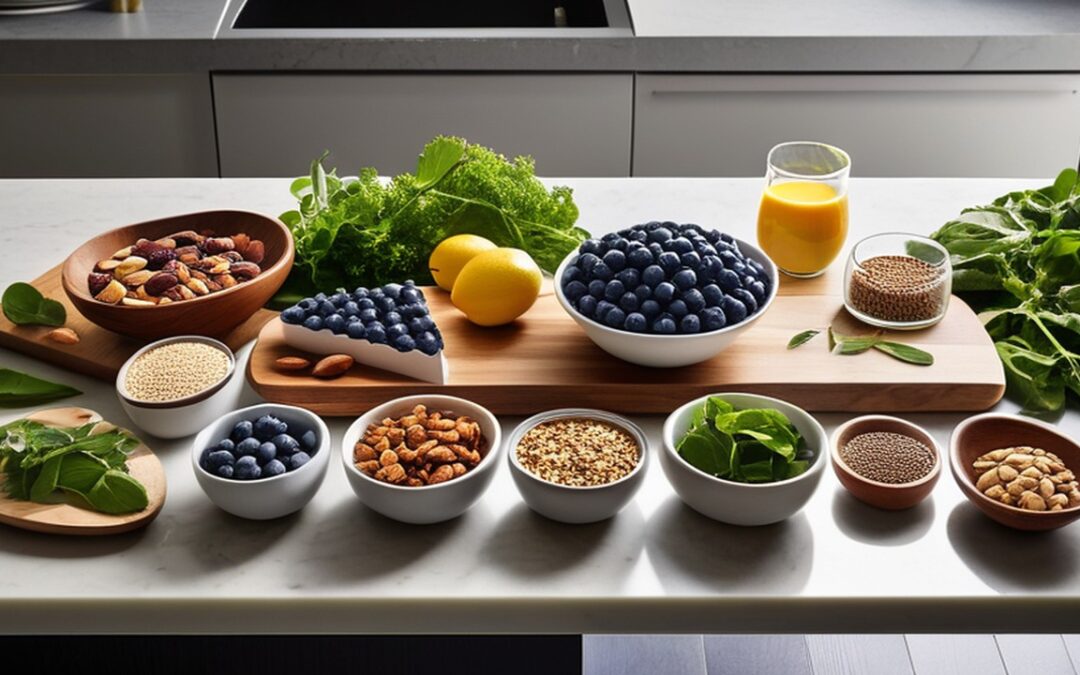
The Best And Interesting Foods For Optimal Brain Health
The Best And Interesting Foods For Optimal Brain Health
The Best And Interesting Foods For Optimal Brain Health
Introduction to brain health and the role of nutrition
Being passionate about maintaining optimal brain health has always been intrigued by the impact of nutrition on cognitive function. Our cerebral mechanism, governing our perceptions, sentiments and conducts, is undeniably the body’s most indispensable entity.
It requires a constant supply of nutrients to function optimally. Diving into the captivating connection between what we eat and how our minds work, it’s wild to see just how much our meals can mess with or mend our mental state and mood!
The impact of diet on brain health
What we choose to feed on plays a major role in the health of our brain, did you know? Evidenced by academic studies, specific nutrients possess the power to revitalize our brains, enhance recall abilities and even ward off neurodegenerative conditions like Alzheimer’s disease.
But if you’re not getting enough of these brain-boosting nutrients, you could find your mental health slipping and even notice a decline in how sharp your mind is.
Essential nutrients for optimal brain function
To support optimal brain function, it is important to include a variety of essential nutrients in our diet. Brain wellness leans heavily on power players like DHA and EPA, specific omega-3 fatty acids that not only architect the framework of brain cells but also ensure their efficient operation.
Foods wealthy in omega-3 fatty acids consist of fatty fish such as salmon, mackerel, and sardines, as well as chia seeds, flaxseeds, and walnuts.
Don’t forget choline, the building block for acetylcholine, a superstar memory and learning neurotransmitter. Eggs, liver, and soy products are choline champions.
Foods such as berries, dark chocolate, and herbal teas – they’re packed with antioxidants that serve as a shield against oxidative stress in your brain which could ultimately put the brakes on cognitive decline.
Foods rich in omega-3 fatty acids for brain health
Omega-3 fatty acids aren’t just a health buzzword – they’re pivotal for keeping your brain fit and healthy by actively promoting the growth and sustained vitality of its cells. When we eat omega-3 fatty acid-rich foods into our meals, it can give a leg up to our brain function and put the brakes on neurodegenerative disease progression.
An ideal omega-3 fatty acid provider is the oily fish known as salmon. Packed with DHA and EPA, this fish is like a gym workout for your brain – essential elements that help maintain mental health at its peak. Regularly eating salmon has the perk of sharpening your memory and focus, plus it cuts back on the likelihood of mental decline.
In the realm of omega-3 fatty acid sources, chia seeds stand tall alongside salmon as a superb alternative that also provides a vigorous boost to your cognitive health. Not only are they loaded with omega-3s, but these dietary champions also deliver a healthy dose of fiber, protein and antioxidants – all critical components in the quest for a well-rounded meal plan.
Including chia seeds into your morning smoothie, spooning them over yogurt, or sprinkling onto oatmeal can give you a solid brain lift from omega-3 fatty acids.
Antioxidant-rich foods and their benefits for the brain
Antioxidants are compounds that can protect our cells from damage caused by free radicals. Oxidative stress hits the brain pretty hard; you know. Oxidative stress can be an establishment for memory decline and neurological harm. Including antioxidant-rich food varieties into your diet plan is an incredible way to shield your brain from this danger.
You know, those little colorful fruits we love like blueberries, strawberries, and raspberries? In addition to their mouthwatering flavor, they’re filled with antioxidants – an undisputed health benefit.
These little powerhouses, loaded with flavonoids, have established themselves as champions for our brain – studies indicate they not only enhance memory but also bolster cognitive functions. Adding a handful of berries to our breakfast or snacks can provide a delicious and brain-healthy boost.
Like those berries we talked about, dark chocolate is another power player packed with antioxidants that give your brain a helpful boost. Dark chocolate’s got flavonoids and a bit of caffeine too, giving your brain a little boost.
It makes better the level of thinking and upgrades mood. Opt for dark chocolate with a high percentage of cocoa to reap the maximum brain-boosting benefits.
The role of vitamins and minerals in brain health
Brain food isn’t just a myth. Brain function relies heavily on the right mix of nutrients and minerals, no doubt about it. Foster fresh neuron development and safeguard against detrimental effects. So eat your veggies and don’t skip those vitamins!
B12 is required for brain health. It not only facilitates the production of essential cerebral messages but also pulls double duty by keeping our neurons in prime condition. Meat, fish, and dairy are great sources, but vegetarians and vegans might need supplements or fortified foods.
Another key player in the game of brain health is magnesium. Engaging with more than 300 biological reactions within our system, magnesium—yes, that indispensable mineral—is undeniably pivotal in governing the brain’s performance.
If you’re looking for magnesium, your best bet is to dig into a salad filled with leafy greens. Throw in some nuts and seeds too! And don’t forget about whole grains; they’ve got plenty of this essential mineral as well.
Superfoods for brain health
Brimming with nutrients, superfoods offer a variety of health advantages – the most impressive one? They’re well known for supporting your head. Integrating these nutrient powerhouses into our meals can give a solid uplift of vital nutrients, fueling top-notch brain functionality.
The vibrant yellow kick in turmeric? That’s all thanks to an active powerhouse called curcumin. Packed with stuff that fights off bad guys like harmful free radicals and inflammation, these compounds truly outshine what you’d typically expect.
Sprinkling some turmeric into your meals, or sipping on a mug of its tea, is a smart move. Since it’s not simply delectable — it can likewise support brain well-being and guard against cognitive deterioration.
It’s not just about the body with leafy powerhouses like spinach, kale and Swiss chard—these nutrient-dense veggies also serve as stellar brain boosters, helping keep your cognitive abilities on point!
Teeming with antioxidants, vitamins and minerals galore, leafy greens like spinach, kale and Swiss chard are a authentic health option not only for your body but also the brain. Vitamin K is just one of their gifts to us – it’s got quite the reputation as a cognitive function enhancer!
The importance of hydration for brain function
Keeping your brain juices flowing at full angle needs you to drink up. Hydration is key! Even a touch of thirst can mess with your brain game. It’s not just about being dehydrated. Memory, focus, and even how we feel – they all take a hit when hydration levels drop.
So don’t slow down on water; it keeps those cognitive wheels spinning smoothly. It is essential to drink an adequate amount of water throughout the day to support brain health.
You’re on point about water not being the only brain booster! Sipping on green tea? Boosting your brain into overdrive and honing in on your focus? That’s the real ticket. Herbal teas like chamomile or peppermint are your go-to for stress busting.
Brain-boosting herbs and spices
Not just for taste, herbs and spices give our food a healthy kick too. They’re little powerhouses of health benefits – brain health included! Blending these mind-enhancing elements into our meals not only elevates cognitive performance but also guards against the onset of degenerative brain conditions.
Rosemary isn’t only known for its taste but also its ability to gear up the brain and its memory. Add some to roasted veggies, marinades, or soups for a delicious brainpower upgrade.
Cinnamon is also one of the brain-healthy foods. Research brings up that our memory and thinking abilities can get a genuine lift from it. Adding a sprinkle to your breakfast or baked goods is a delicious way to boost your brainpower.
Incorporating brain-healthy foods into your diet
Now that we have explored the essential nutrients, superfoods, and brain-boosting herbs and spices, it is time to incorporate these brain-healthy foods into our daily diet. Here are some tips to help us get started:
1. Start the day with a brain-boosting breakfast: Include foods such as eggs, salmon, berries, and whole grains to provide a nutrient-rich start to the day.
2. Snack on brain-healthy foods: Keep a supply of nuts, seeds, and fresh fruits for quick and nutritious snacks throughout the day.
3. Try different things with brain-boosting helping recipes: Integrate ingredients like turmeric, leafy greens, and nuts into the recipes to add a brain healthy blend.
Recipes and meal ideas for brain health
To inspire us on our journey to better brain health through nutrition, here are some delicious recipes and meal ideas:
Salmon and Quinoa Salad
Ingredients:
- 1 cup cooked quinoa
- 4 ounces cooked salmon, flaked
- Mixed greens
- Cherry tomatoes
- Cucumber slices
- Lemon juice
- Olive oil
- Salt and pepper to taste
Instructions:
1. In a large bowl, combine the cooked quinoa, flaked salmon, mixed greens, cherry tomatoes, and cucumber slices.
2. Drizzle with lemon juice and olive oil, and season with salt and pepper.
3. Toss well to combine and serve.
Berry Smoothie Bowl
Ingredients:
- 1 frozen banana
- 1 cup mixed berries (blueberries, strawberries, raspberries)
- 1/2 cup Greek yogurt
- 1/4 cup almond milk
- Toppings: granola, chia seeds, sliced almonds, fresh berries
Instructions:
1. In a blender, combine the frozen banana, mixed berries, Greek yogurt, and almond milk.
2. Blend until smooth and rich.
3. Pour the smoothie into a bowl and top with granola, chia seeds, sliced almonds, and fresh berries.
Conclusion
Eat healthy for a sharp brain today and strong memory for the future. Brain-friendly foods fight decline and boost mental power. To optimize your mental agility, start hydrating more frequently. But that’s not all; get into the world of memory-boosting herbs and give brain-nourishing meals a try.
Keep in mind, consistently talk with a medical services proficient or enrolled dietitian prior to rolling out critical changes to your eating regimen.
Call To Action: Start boosting your brainpower right now by including these mind-nurturing foods in your everyday meals. Give these tasty meals and recipes a shot, you’ll soon spot the positive changes in your thinking power and overall health.
RELATED POSTS
Unlocking the Secret of Iron-Rich Foods in Vegetarian Diets
The Best And Interesting Foods For Optimal Brain Health
Being passionate about maintaining optimal brain health has always been intrigued by the impact of nutrition on cognitive function. Our cerebral mechanism, governing our perceptions, sentiments and conducts, is undeniably the body’s most indispensable entity.
From Thin to Thick: The Best Herbal Supplements for Hair Growth
When it comes to hair growth, many of us are on a never-ending quest for thicker, fuller locks. There is a plethora of products on the market claiming to promote hair growth, but one natural and effective solution to consider is herbal supplements.
FOLLOW DISCOVERY BLOGGER



